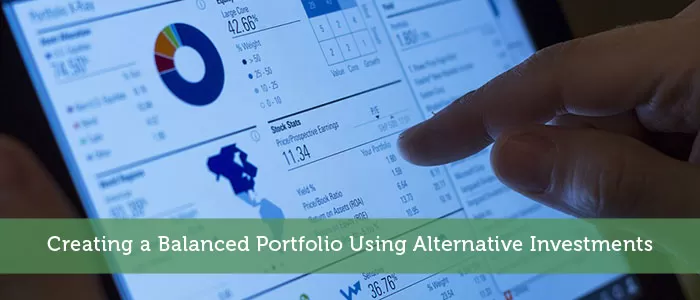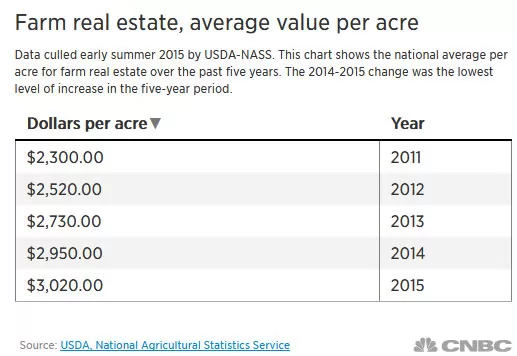Investing in Alternative Asset Classes
It's never easy to predict what markets will do in the future. That's why it's best to maintain a well-diversified, balanced portfolio to weather the ups and downs over the long run.
But what exactly is a balanced portfolio? Many investors are already familiar with stocks and bonds. Thus, the 100 minus age rule is quite popular. This is the notion that you should take 100 minus your current age.
The result is how many percent of your investments should go towards stocks, such as Motley Fool stock picks. And the remaining percentage should be allocated towards bonds.
One represents a class of investment called equity, and the other is a type of fixed income. Exchange-traded funds or mutual funds are a collection of individual stocks and bonds on the public markets. Additionally services such as Betterment can be an alternative to investing in traditional mutual funds.
But if you're a serious investor, sooner or later you'll probably run into the fascinating world of alternative asset classes which are investments not represented in the traditional stock and bond financial markets. Here are some examples of alternative assets to invest in.
- Farmland
- Private equity
- Mortgage
- Real Estate
- Fine art
- Hedge fund
- Commodities
- Hard asset lending
- Derivative contracts
- Precious metals
These types of assets are often favored because their returns have a low correlation with those of traditional asset types such as stocks and bonds. Do alternative investments work? The answer is sometimes.
They can be very useful for hedging against risk during economic downturns. A study published by BlackRock reveals that many alternative investments did provide protection over stocks during the 2001 and 2008 recessions because they performed better than the stock market.
But it also depends on which alternative investment you're buying. For example, hedge funds had a terrible year in 2016 while the S&P500 stock market index experienced double digit gains. Another thing to watch out for are the high fees that usually comes with investing in hedge funds.
The average management fee and performance fee that investors pay for a typical hedge fund investment is 1.6% and 17.7%, respectively. The topic of fees has moved to the forefront of investors' minds, and as competition grows in this space the fees should decrease over time.

Phillip Maupas, CFA // @philmop
The Advantage of Hard Asset Investments
One asset class that has a long term track record of high performance is farmland. Food is clearly an important part of human culture and we eat it every day. Since agriculture is so ingrained in our lives why not also make it a part of our investment strategies?
Many investors buy farmland for inflation protection, to hedge against the higher cost of living. Unlike gold, which is also a hedge against inflation, farms have the added benefit to actually generate income through either rent, or crop share.
Recommended Stock Investing Posts:
- Traditional IRA vs. Roth IRA vs. 401k
- Why Leveraged ETFs are Better Than Futures and Options
- How to Supplement Your Income with Stocks
- Investment Diversification: 5 Risky Mistakes to Avoid
- Using The Power Of The 80-20 Rule For Larger Returns
- Roth IRA Conversion Ladder for Early Retirees: Decoded
- 6 of the Most Popular Instruments for Financial Traders
- How to Use Behavioral Finance to Your Investing Advantage
United States farmland values have had greater average annual returns over the last 20 years than the stock market. In 2008, during the great recession, the stock market plummeted 40%. But the average price of farmland in some states such as Iowa rose 14% in the same year.
This return was from appreciation alone, and doesn't even count any additional income generated from land production. From 2011 to 2015 farmland values have increased steadily according to the U.S. Department of Agriculture.
Another popular asset class is the precious metals market. Both gold and silver have at least maintained their purchasing power over the long run. They are the oldest mediums of exchange and will continue to exist for generations to come.
Both farmland and precious metals are known as hard assets because they are tangible goods that have intrinsic value. A stock of a business can decrease to $0 if the company goes bankrupt. However land and hard commodities such as gold and silver will always retain at least some form of value.
A mortgage is another useful alternative asset that savvy investors can add to their portfolios. Usually this is done through a mortgage investment corporation, or MIC. This is sometimes also known as a mortgage REIT.
These types of investments can be either bought on the public markets or through private placements. Mortgages REITs allow investors to pool their money together for the purpose of lending it out in the form of short-term real estate loans. Traditionally, banks and other large financial institutions underwrite mortgages for homebuyers.
But banks will sometimes refuse to lend money to people with unstable income, such as a self-employed construction worker. This creates a lucrative opportunity for mortgage REITs to come in and provide the lending. It essentially lets investors participate in, and profit from, the mortgage lending industry.
Due to a higher risk profile for many of these borrowers the interest rate for MIC mortgages are higher than traditional bank mortgages. Investors can usually expect to earn a stable 5% or more annual return.
Risks Associated with Alternative Investments
Just because alternative assets don't behave like traditional securities, it doesn't mean they are less volatile as a whole, or are safe from investment losses. Alternative asset classes are usually not liquid. Sometimes they require investors to stay locked in for a number of years before having the option to exit the investment. Most alternative asset classes are meant to be long term anyway.
Although it's possible to buy and sell farmland or antiques as often as you like, it's generally better to have a 5 to 10 year strategy when investing in alternative asset classes. These investments also tend to have limited reporting, are more opaque, and are less regulated by the government.
So it's up to the individual investor to conduct the research and due diligence. This is why investing in these asset types generally require a higher level of understanding and sophistication on the part of the investor, than for simply investing in stocks and bonds.
Alternative investments shouldn't replace traditional stocks and bonds in one's portfolio. Instead it should compliment traditional asset classes. Depending on the individual it would be appropriate to allocate 10% to 25% of one's tangible net worth in alternative assets.
This will provide investors with unique exposure to parts of the economy that is less transparent than the capital markets. Due to the low correlation it has with the broader markets, alternative securities can help a portfolio withstand major economic turmoil like the last financial crisis.
Some alternative assets like farmland can be a great store of value over the long term, while others like mortgages can further diversify the fixed-income portion of one's existing portfolio.
Getting into hedge funds requires more work and research than buying a stock or mutual fund. But this forces you to really understand what you're buying and have a more holistic idea of whether or not the fund really fits your investor profile.
This understanding removes uncertainty and creates confidence. Confidence leads to a sense of control, purpose, and security. Not only will you understand what you own, but also why you own it and how it will help you achieve your long-term financial goals.
The Federal Reserve has recently raised interest rates again and judging by recent economic indicators it appears the United States is heading for a long period of inflationary pressures. Looking ahead there are two alternative asset classes that should really benefit in these economic conditions; agricultural land and precious metals.
In the event that the stock market should experience a correction this year, investing in some hard asset classes along with traditional stocks can help reduce the damage to one's overall portfolio.
Exclusive Bonus: Hard assets such as farmland and precious metals should outperform in 2017. Receive a free analysis of the best securities based on these alternative investments that you can buy right now.





